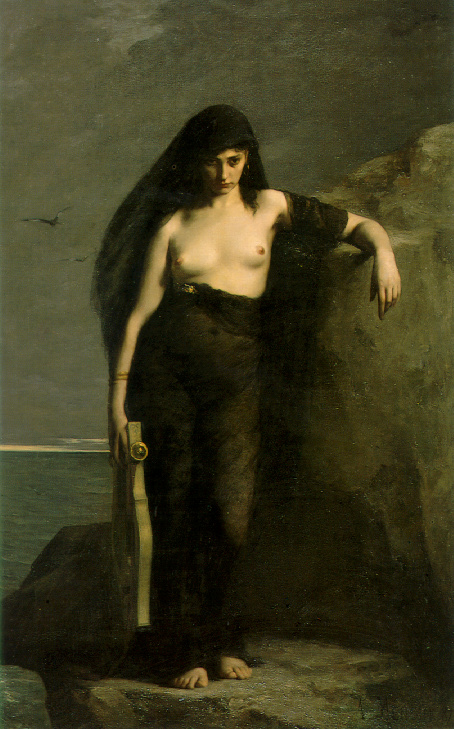Contempo’s classical and jazz mix makes for bracing night at the Harris

Founded by Ralph Shapey, the Chicago Contemporary Players concerts—Contempo for short—have been bringing new music to local audiences for 46 years, with the University of Chicago series presenting more than eighty world premieres. That tradition continues today under composer and CCP artistic director Shulamit Ran, with Contempo drawing on U of C’s two superb resident ensembles, the Pacifica Quartet and eighth blackbird, as well as guest artists.
Jointly presented with the Harris Theater, Saturday night’s genre-traversing program served up a bracing lineup of contemporary music performed by eighth blackbird and guests, capped by a jazz set featuring saxophonist Chris Potter and pianist Kenny Werner.
The first half centered on varied music of youth and experience, all written in the last four years, with a major work by Bernard Rands, 75, set against two works by composers in their thirties.
Rands recently completed his Van Gogh opera, Vincent, on Christmas Day, and was represented Saturday night by another vocal work, now again–fragments from Sappho.
Scored for mezzo-soprano soloist with backing septet, now again draws upon Paul Roche’s translations and free renderings of the few surviving fragmented stanzas of the celebrated yet historically nebulous poet of Lesbos. The score is less a dramatic song cycle than a reflective meditation, painting a spare, melismatic evocation of the broken, elliptical texts.
Yet Rands’ luminous music is consistently compelling and ear-catching, lyrical yet cast with neo-Classical restraint as with the bardic opening for solo harp that introduces the words “Far sweeter-tuned / than a lyre/ Golder than gold / softer than velvet.” Rands adds pointillist dashes of trumpet, flute and percussion amid effective use of an echoing soprano and alto (Amy Conn and Nina Heebink).
Susanne Mentzer proved a fine advocate for this music, her dark-hued voice assaying the leaps and challenges of the restless vocal line and conveying the texts’ sensuality and expressive nuance. Conductor Cliff Colnot brought his usual meticulous preparation and concentrated direction to the score, allowing all the crystalline subtleties to register.
Most composers seem to find it impossible to write any percussion music for less than a thousand instruments, yet Yu-Hui Chang’s Binge Delirium refreshingly limits the resources to a tiny non-pitched kit. The Taiwanese composer’s work offered a fine showpiece for percussionist Matthew Duvall who brought out the rhythmic ingenuity with driving energy and a widely terraced dynamic palette.
A quartet inspired by moths seems like a less-than-promising premise, but Towards the Flame by Shawn Brogan Allison proved a smartly crafted and communicative work. Scored for flute, violin, cello and percussion, Towards the Flame makes its effects with precision and economy in four brief portraits of Lepidopteran genii.
Tun ‘Tawu—the Cherokee name for the fire-darting pale yellow moth—opens with quasi-Baroque string lines against percussive flute effects, seguing into a bluesy section. Death’s Head paints the ominous European Hawk moth of Silence of the Lambs fame in music for mournful violin and flute, leading to an elegiac cello solo. The music morphs from a dirge-like expression into a more aggressive defiance. Atlas reflects the largest of the species with its foot-long wingspan, first in tight, fluttery figurations, the moth’s death given a Siegfried-like majestic grandiloquence. The concluding mysterious Chrysalis offers a lyrical, otherworldly violin solo played with great sensitivity by Matt Albert. He and colleagues—-percussionist Duvall, flutist Timothy Munro and cellist Nicholas Photinos— provided Allison’s quirky, intriguing music with polished, supremely communicative advocacy.
In her remarks, Ran mentioned that the Contempo series has always sought to eradicate barriers between musical genres, which was manifest in the second half.
Mentzer returned for a sensitive, crisply articulated rendering of September Song, which would have benefited from more judicious amplification or none at all. As the song came to an end, blackbird pianist Lisa Kaplan unobtrusively ceded her bench to Kenny Werner, Mentzer exited as saxophonist Chris Potter walked on and, without a pause, the duo directly segued into an extempore jazz improvisation on Kurt Weill’s classic.
The two men are not regular collaborators, which was sometimes apparent in the awkward endings, but they are both greatly gifted musicians and brought an easy camaraderie to their set. Potter’s astringent bravura was a fine foil for Werner’s refined yet offbeat style, the pianist at one point, standing and playing the keys with his right hand while slapping the piano strings with his left.
Posted in Performances



